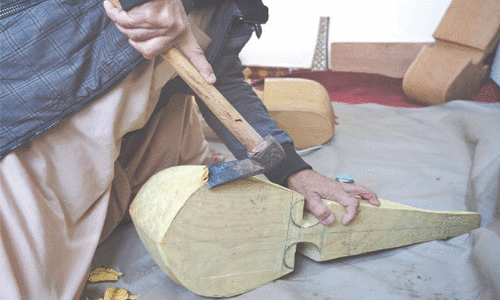HANOI: Wearied by the rampant cheating, endless rote learning and mandatory Leninist ideology classes, Vietnam’s middle-classes are fleeing the country’s school system for overseas education.
Every year, Vietnamese parents spend more than $1 billion sending their children to schools and colleges abroad, according to data from independent monitors, shunning a local system so backwards that experts say it is impeding economic growth.
From teenagers sent to secondary schools in Singapore to university students studying at prestigious American institutions, at least 125,000 Vietnamese students are studying overseas, according to ICEF Monitor, which tracks the international education industry.
The figure represents just a fraction of the nation’s near-17 million school and university students, but it is growing fast — up 15 per cent year-on-year in 2013 alone.
Civil servant Nguyen Thi Thu sold family property to cover the hundreds of thousands of dollars needed for her two sons to study overseas.
“I had to get my kids out of this education system which is all pressure and cheating,” she told AFP.
When her sons — who both now study in the UK — were attending state schools in Hanoi, Thu says she had to regularly miss work to take them to additional private classes held by poorly paid state teachers.
“Once, my son asked me why he never got the top score even though he performed better than his friend. I couldn’t explain that his friend’s mother took better care of the teacher, giving her much money,” she said.
Bad education
Vietnam’s Confucian lineage means education is something of a national obsession, but experts say schools are failing students, leaving parents desperate to get their children into western institutions that will give them the qualifications they need to find employment.
Some 20,000 Vietnamese now study in Australia, 16,500 in the United States and 5,000 in the UK — small but significant numbers from a communist country where only the elite have traditionally had access to foreign education.
Yet despite the increased exodus, foreign universities still remain out of reach for most families in Vietnam, where average per capita income is just over $1,500.
Vietnam’s state education does score well in some indices — the country ranked 17th out of 65 for mathematics and science, according to the Programme for International Student Assessment (PISA) chart, ahead of many wealthy western countries, including the US.
But top officials have warned these test results do not accurately reflect the quality of overall education in a nation where central control has cramped policy innovation.
“We have to be honest and admit that if fully assessed, Vietnamese students’ capacity is still poor,” Nguyen Vinh Hien, deputy minister of education and training was quoted in Tuoi Tre newspaper in 2013.
Four decades after the end of the Vietnam War in 1975, officials have yet to fully reform an education sector, which critics say still works to promote the Party rather than create skilled workers.
Authorities have kept in place a system heavy on rote learning, regurgitation of facts to pass exams, and obedience to authority — with little room for critical thinking.
Students rely on outdated, leaden textbooks, cheating is routine in exams while underpaid teachers are renowned for withholding chunks of the syllabus to instead impart in private classes they can charge for.
“University education is so bad. Textbooks are full of unnecessary, tedious theory,” former education minister Pham Minh Hac told AFP, warning that the books were so information-heavy they turned students off studying.
During and immediately after Vietnam’s annual high-school graduation exams in the summer there are always multiple complaints to the ministry of education of cheating by students.
In June 2014, well-known education activist, teacher Do Viet Khoa posted on his Facebook page video clips of students copying during Literature and History exams at a high school in northern Hoa Binh province.
According to Khoa, exam supervisors deliberately left the exam rooms, allowing the examinees to freely copy from already prepared papers and discuss the exams among themselves, VietnamNet news site said.
Such clips routinely go viral and prompt widespread concern among parents, but authorities rarely — if ever — take action.
As a result of these shortcomings, Vietnamese state schools and universities are not producing graduates companies want to hire — some 147,000 postgraduates could not find work this year, according to official statistics.
“These graduates can’t meet the demands of the labour market,” Hac said, blaming the school system for “teaching knowledge not wisdom”. Instead staff for management positions are often imported — from Korea, China and the US.
Good results overseas With very few top-quality private schools in Vietnam, escaping the dysfunctional state education system is a priority the better off.
“They have changed a lot in their thoughts, their lifestyle, their performance, behaviour and viewpoints,” businessman Nguyen Quang Thinh said of his two sons studying in the US at a cost of $40,000 a year.
Lu Thi Hong Nham, director of study abroad consultancy firm Duc Anh added: “Many students were fed up when studying inside the country, but overseas they gained very good results.”
Unless communist Vietnam is prepared to let the education system be run by experts not politicians, things are not going to change, renowned teaching expert Pham Toan warned.
“You can do nothing... when education is in the communist party’s resolution,” he said, referring to a paper passed in 2013 that calls for a “comprehensive renovation” of the education system, without specifying changes.
“I am truly desperate” with the system, he added.
Published in Dawn January 22nd , 2015
On a mobile phone? Get the Dawn Mobile App: Apple Store | Google Play















































Dear visitor, the comments section is undergoing an overhaul and will return soon.